
Microelectronics Workforce Development Hub
Microelectronics careers
From computers and mobile phones to cars and household appliances, microelectronics are everywhere — and jobs in the industry are set to grow by 33% by 2030, offering earning potential and exciting new career pathways for people interested in a dynamic, fast-growing sector of the economy.
Microelectronics manufacturers are looking for talent, and ASU is working with industry leaders to help them fill this need by offering education and training to help prepare learners for lucrative job opportunities.
Examples of opportunities in the microelectronics industry
Whether you are seeking a degree, are already in the workforce and looking to level up your skills or are in high school and are seeking a pathway into microelectronics, ASU offers a wide array of programs to help learners from diverse backgrounds to thrive in one of the world’s fastest growing industries.
- Applications engineer
- Field service engineer
- Integrated circuit designer
- Process engineer
- Quality and reliability engineer
- Research and development
- Semiconductor engineer
- Semiconductor manufacturing technician
- Semiconductor packaging engineer
- Supply chain and operations engineer
- Test engineer
Create a customized partnership
ASU experts work with microelectronics companies to develop customized, scalable workforce training. Please reach out to us to learn more.
Ready to take your next steps? Start searching our offerings…
Showing 90 results for:
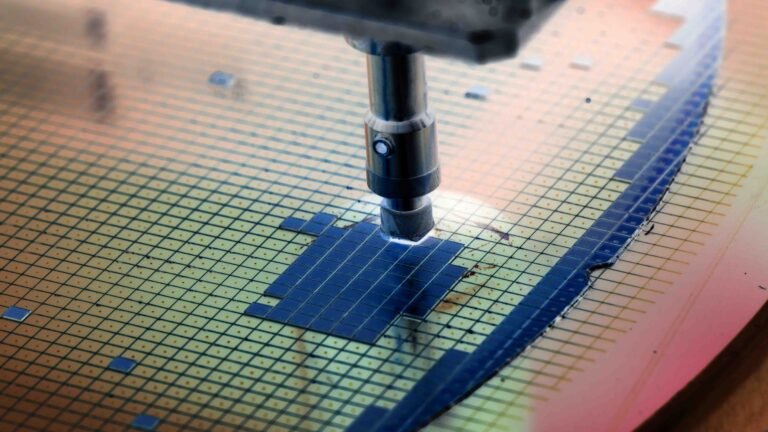
Additive Manufacturing – Microelectronics
Learn about the growing field of additive manufacturing through an introduction to six different processes widely used in the microelectronics industry. This specialization is designed for learners interested in the applied basics of additive manufacturing processes and designs, including specific 3D printing methods.
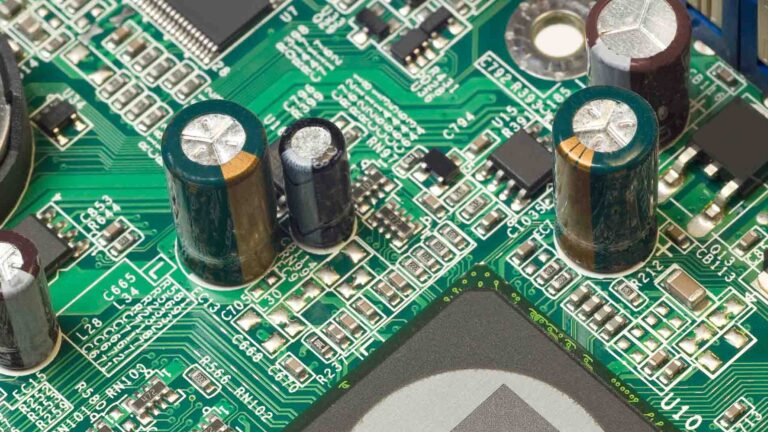
Anti-Fragile Supply Chain Design
This course trains current and future supply chain managers to identify risks and improve the resilience of microelectronics supply chains using cutting edge approaches in AI, machine learning, digital analytics and more.
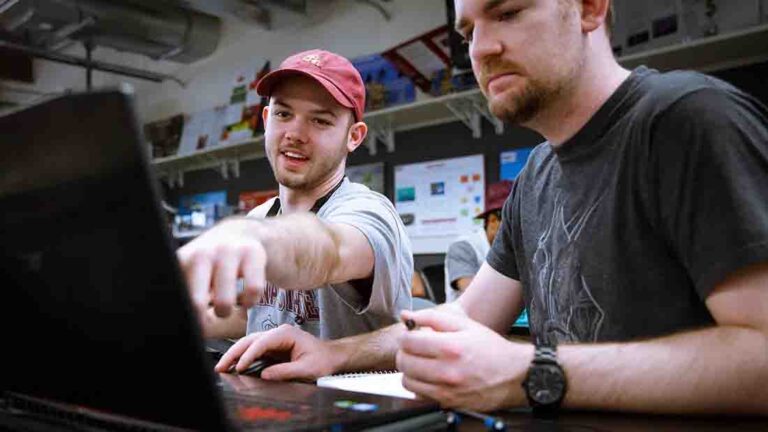
Applied Science (Operations Management), BAS
Graduates of the BAS program with a concentration in operations management are able to provide strategic focus and meet organizational objectives by implementing best practices, managing people and creating value. These skills are essential in advanced manufacturing settings, such as the microelectronics industry.

Battery Technologies – Microelectronics
This Battery Technologies specialization builds an in-depth understanding of batteries for applications in microelectronics and electric vehicles, addressing battery applications, architecture, cell chemistries, battery charging, battery management Systems and more.
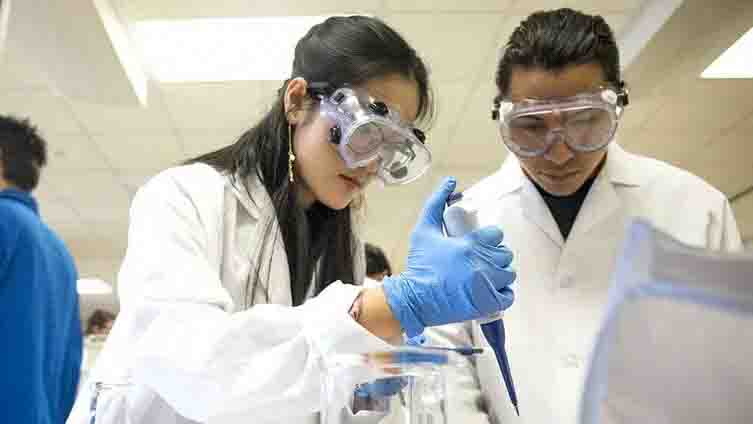
Chemical Engineering, BSE
The BSE program in chemical engineering deals with the application of chemistry, physics and mathematics to the process of converting raw materials or chemicals into more useful or valuable forms. Chemical engineering also involves the design of valuable new materials and chemical products, including for the microelectronics industry.
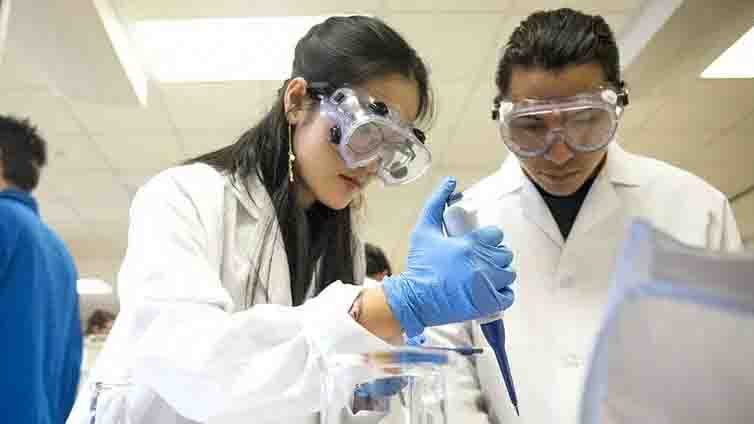
Chemical Engineering, MS
The MS in chemical engineering addresses diverse areas of emphasis with application in microelectronics including electrochemistry, electronic materials processing, engineering education, flexible display technology, fuel cells, inorganic membranes, process design and operations, and water purification.
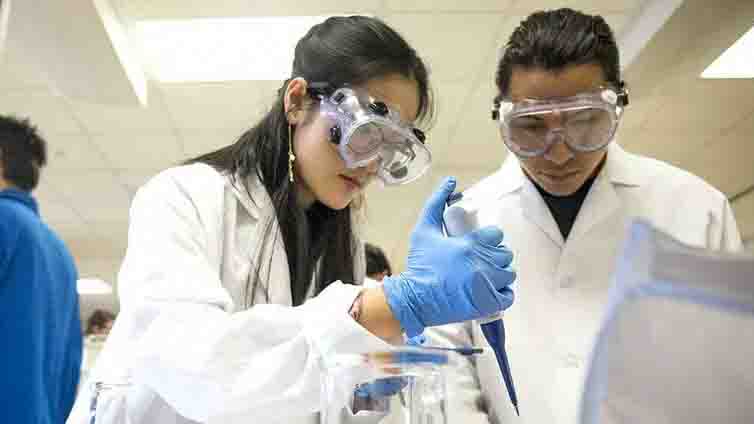
Chemical Engineering, PhD
The PhD in chemical engineering addresses diverse areas of emphasis with application in microelectronics including electrochemistry, electronic materials processing, engineering education, flexible display technology, fuel cells, inorganic membranes, process design and operations, and water purification.
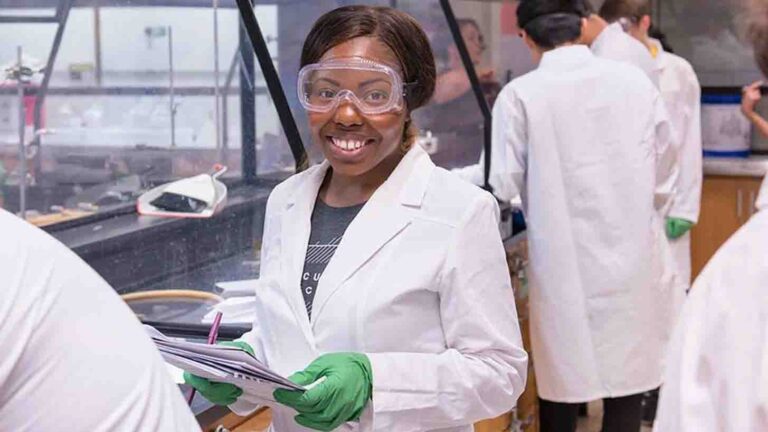
Chemistry, BS
In the BS program in chemistry, students gain the knowledge and skills to solve problems at the atomic and molecular levels in areas as diverse as microelectronics, energy and sustainability, new materials for technology, medicine and health, nanoscience, environmental science, forensics, cosmetics and food chemistry.

Chemistry, Minor
The minor program in chemistry offered by the School of Mathematical and Natural Sciences gives students expanded proficiency in biochemistry, analytical chemistry, and advanced and integrative fields of chemistry, offering valuable insight applicable to many STEM fields, including microelectronics.

Computer Science (Software Engineering), BS
The software engineering concentration of the BS program in computer science is appropriate for computer science students seeking careers as software engineers. Students learn advanced processes, methodologies and tools for developing and testing large and small software applications in emerging industries including microelectronics.

Computer Science, BS
The BS program in computer science provides a solid foundation in theoretical and practical aspects of computer science for application across numerous industries, including microelectronics. The program ensures students have the requisite critical thinking, effective programming and problem solving skills in a variety of modern programming languages for application across multiple fields.

Computer Science, MCS
The MCS program affords an opportunity for students employed in industry to seek a breadth of advanced education in computer science.The program reflects the dual nature of computer science as a scientific and engineering discipline by allowing emphasis on theory as well as practical applications, including in the microelectronics industry.

Computer Science, MS
The MS program in computer science prepares students to undertake fundamental and applied research in computing, including in microelectronics.Students can study topics such as: artificial intelligence, machine learning and statistical modeling, big data and data mining, computer design and architecture, cyber-physical systems, IoT and robotics, and much more.

Computer Science, PhD
The PhD program in computer science prepares students to undertake fundamental and applied research in computer science. The program provides students with research opportunities in a wide variety of areas with application in the microelectronics industry.
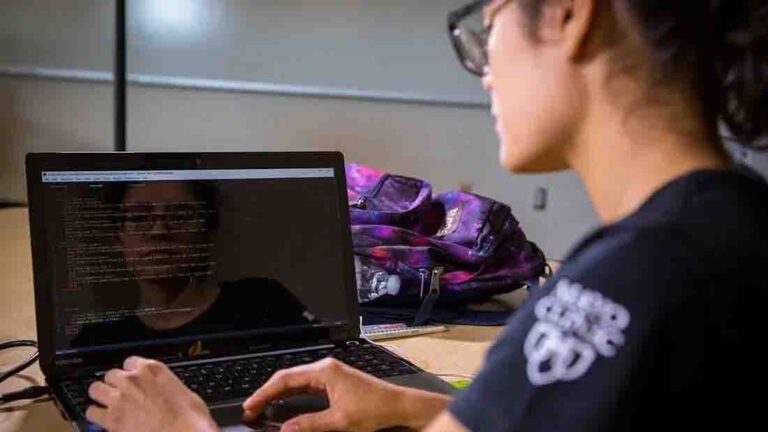
Computer Systems Engineering, BSE
The BSE program in computer systems engineering focuses on the analysis, design, testing, integration and evaluation of hardware and software systems used across industries, including in microelectronics. The curriculum is grounded in numerous engineering disciplines.
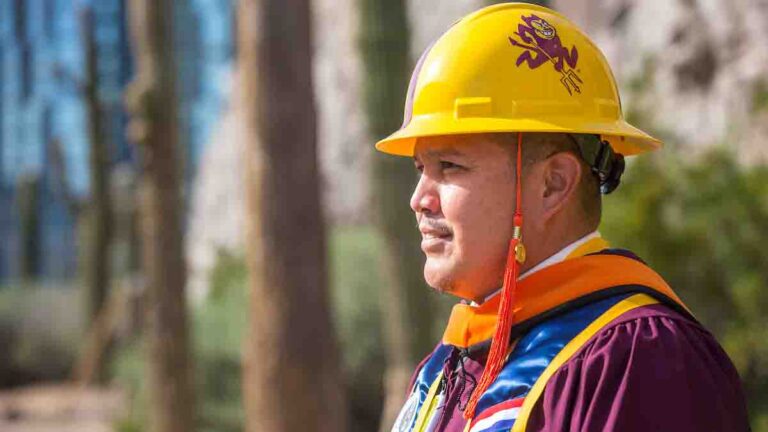
Construction Management and Technology, BS
The BS program in construction management and technology allows students to specialize in construction and facility management. Students learn to organize, lead and manage the building construction business processes related to facility and infrastructure projects, including in the microelectronics industry.

Data Analytics Methods
This course provides training and predictive modeling for business settings, including the microelectronics industry. The course culminates in a capstone project that gives learners the practice and confidence necessary to connect, explore, and analyze data sources.
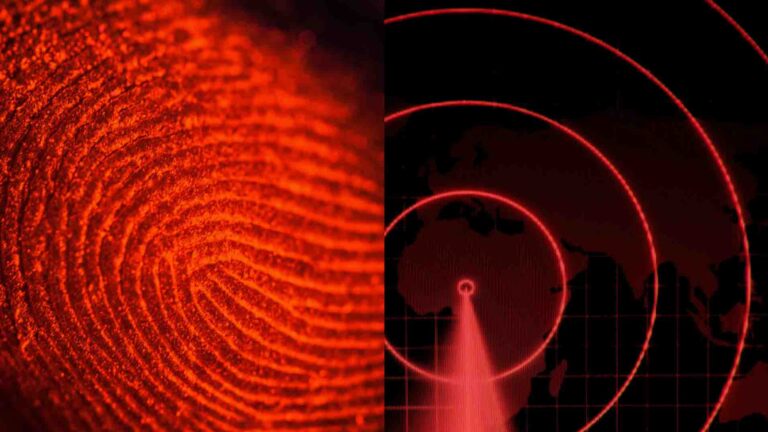
Data Science
The data science certificate program combines the strengths of database skills with interdisciplinary computational statistics with application in business and technical roles in microelectronics. The program trains students to extract insights from complex datasets using a hands-on approach.

Data Science, Analytics and Engineering (Electrical Engineering), MS
The MS program in data science, analytics and engineering with a concentration in electrical engineering provides an advanced education in high-demand data science and electrical engineering, including for applications in the microelectronics industry.

Data Science, Analytics and Engineering (Materials Science and Engineering), MS
The MS program in data science, analytics and engineering with a concentration in materials science and engineering provides an advanced education in high-demand data science and materials science and engineering, including for applications in the microelectronics industry.
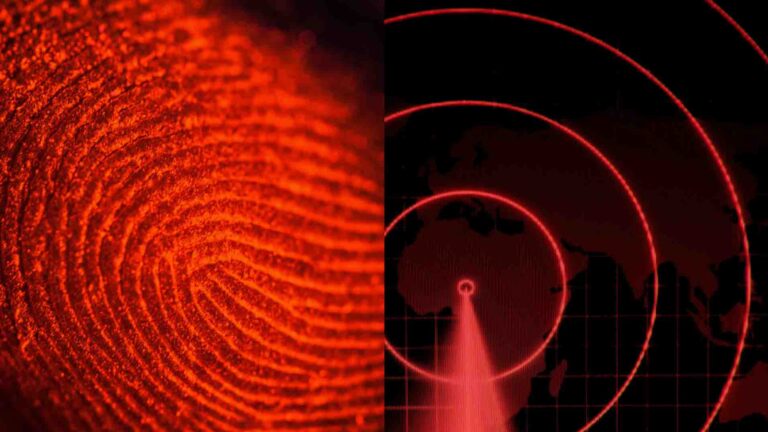
Data Science, Minor
A minor in data science provides students with skills in statistics, probability and coding in the context of large data sets to learn how to manipulate data sets to make conclusions and recommendations that can have an impact in real-world settings, including the microelectronics industry.
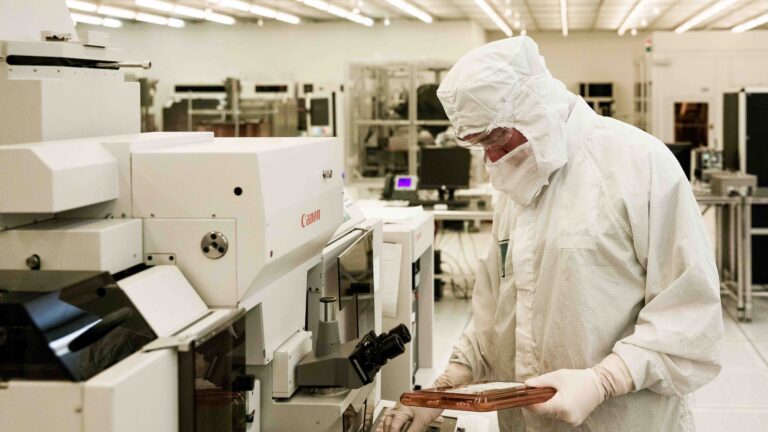
Design of Experiments
The Design of Experiments Specialization offers training in the experimental tools and methods that are widely used in the microelectronics industry to improve products and processes. The four-course specialization is offered in a fully online, asynchronous format that provides maximum flexibility for current workers.

Designing Anti-Fragile Microelectronics Supply Chains
Microelectronic design, fabrication, manufacturing, and transportation networks extend farther across the globe each day. Learn crucial skills to strengthen each link of these increasingly long and complex supply chains with the Designing Anti-Fragile Microelectronics Supply Chains certificate.
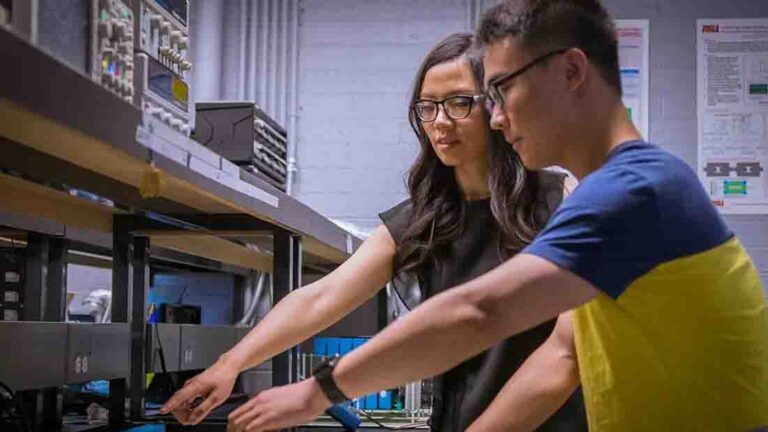
Electrical Engineering, BSE
The BSE program in electrical engineering prepares students for positions as electrical engineers, a vital role in the microelectronics industry. The curriculum includes a number of required upper-division electrical engineering and technical elective courses in such areas as circuits; communication, signal processing and control systems; computer engineering; electromagnetics; power; and solid-state devices.
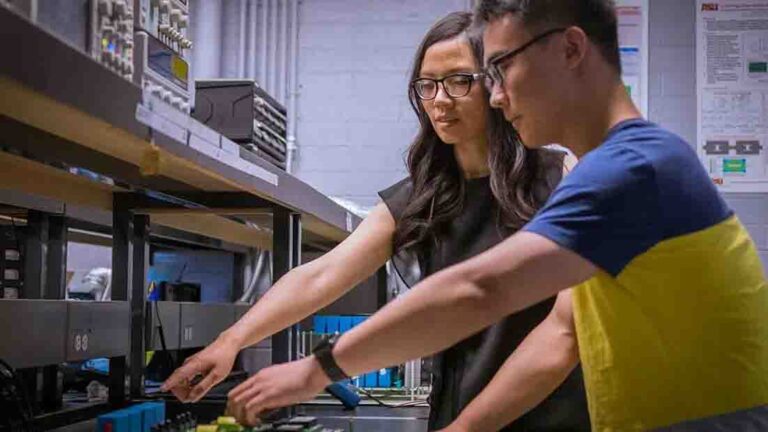
Electrical Engineering, MS
The MS program in electrical engineering offers a research track that allow students to choose among and specialize in multiple areas of specialization directly relevant to the microelectronics industry.
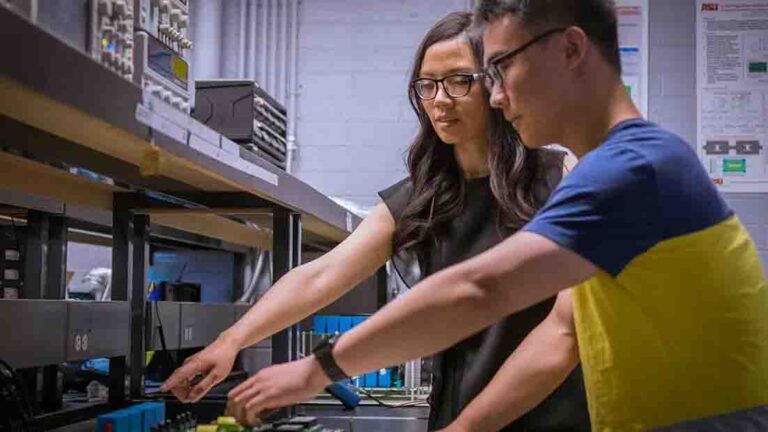
Electrical Engineering, MSE
The MSE program in electrical engineering explores multiple areas of specialization of direct relevance to the microelectronics industry. A concurrent degree, the MBA/MSE in electrical engineering, is available as an online option.
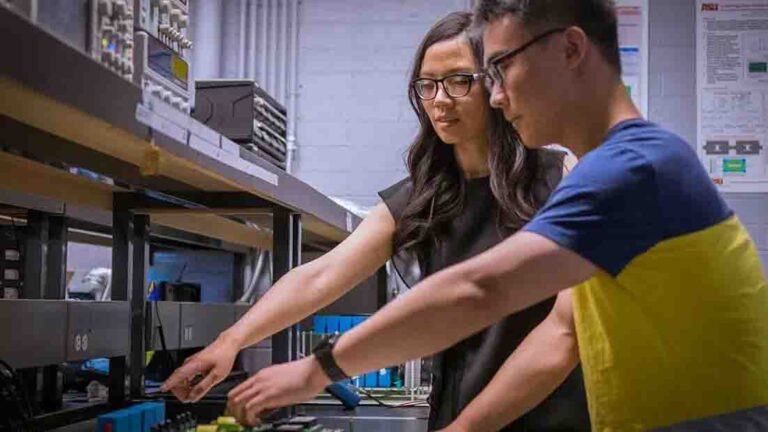
Electrical Engineering, PhD
Electrical engineering is a vital discipline for microelectronics, and the PhD in electrical engineering equips students for advanced technical roles within industry and academia. Courses and programs are offered in six areas of specialization with high relevance to the microelectronics industry.
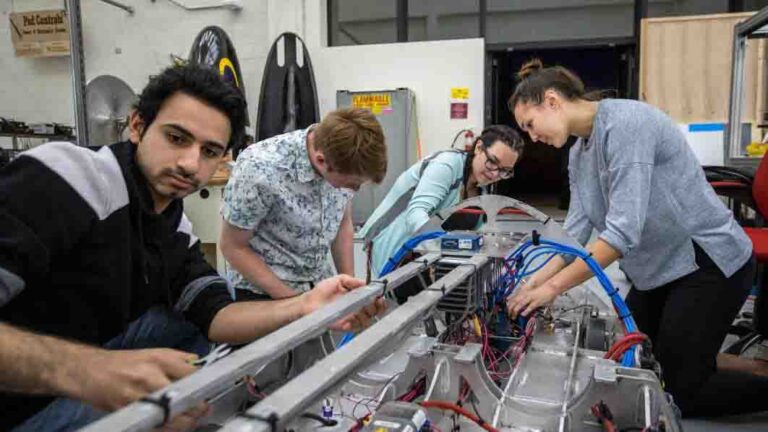
Engineering (Electrical Systems), BSE
Students in the electrical systems concentration of the BSE program build a broad engineering foundation to which they add the skills and knowledge they will need in order to contribute electrical subject matter expertise in transdisciplinary engineering teams, including theory and application of sensors, actuators, microcontrollers and microprocessors as well as the integration of these components into electrical and mechatronic systems.
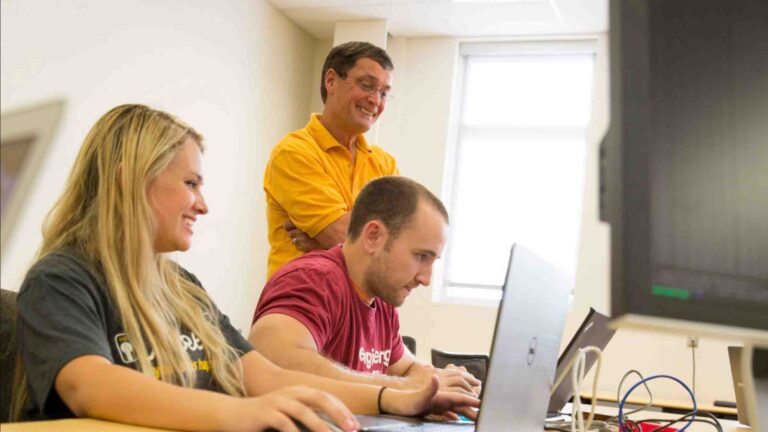
Engineering Management, BSE
Students in the engineering management concentration of the BSE program learn a breadth of engineering science and design with depth in one specific area suitable for practice. This knowledge is augmented with an understanding of business practices and organizational behavior and with the development of management skills, enabling the graduate to succeed in the management of scientific and engineering enterprises, including in microelectronics.
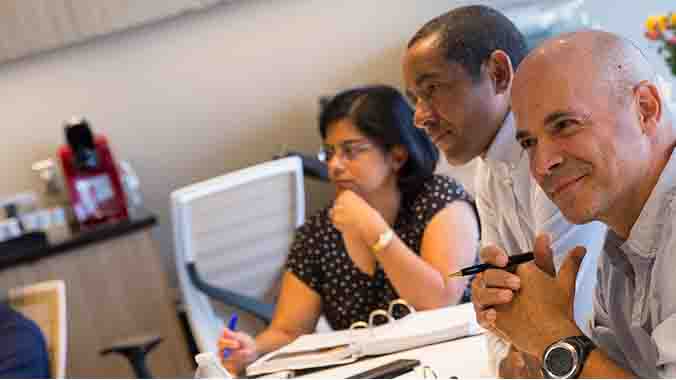
Engineering Project Management
ASU’s Engineering Project Management Certification, developed and delivered by world-renowned faculty of the Fulton Schools of Engineering, equips workers with foundational knowledge and understanding of project management fundamentals and best practices widely used in the microelectronics industry and advanced manufacturing.
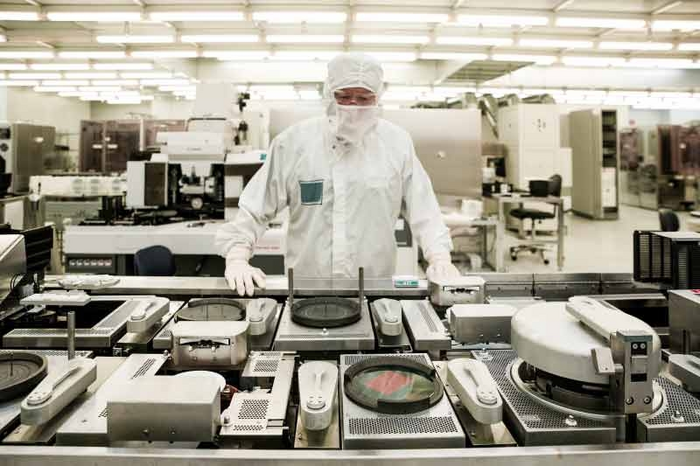
Engineering Science (Microelectronics), BS
Prepare to excel in the microelectronics industry with the BS program in engineering science with a concentration in microelectronics. Students master fundamental mathematics, coding, digital design and physics, while simultaneously
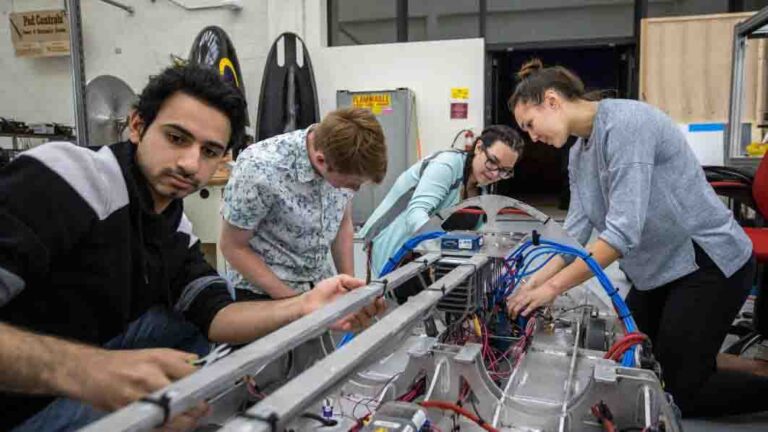
Engineering, BSE
The BSE program in engineering prepares graduates to collaborate across disciplines to design and build solutions to real-world problems. Students can choose from multiple concentrations with application in the microelectronics industry, including electrical systems, mechanical engineering systems and robotics, as well as automotives.
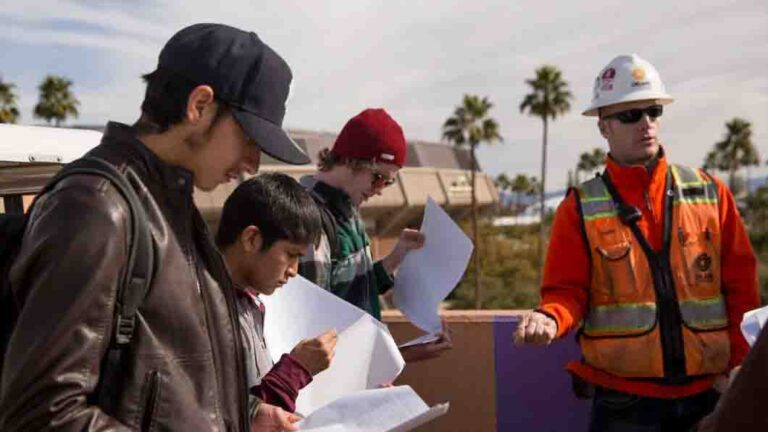
Environmental Engineering, BSE
The BSE program in environmental engineering equips students to handle a variety of issues related to microelectronics manufacturing including air pollution control; analysis of the fate and transport of pollutants; application of sustainable design principles; water and wastewater treatment systems; hazardous waste containment systems; solid waste management systems; remediation of contaminated soil, sediment and water; and water quality, conservation and reuse.

Foundations of Supply Chain Management
Unlock the foundational and advanced knowledge you need to tackle, resolve and manage complex problems that confront supply chain managers in the microelectronics industry and beyond through data-driven approaches that increase efficiency, adaptability and sustainability of business practices.
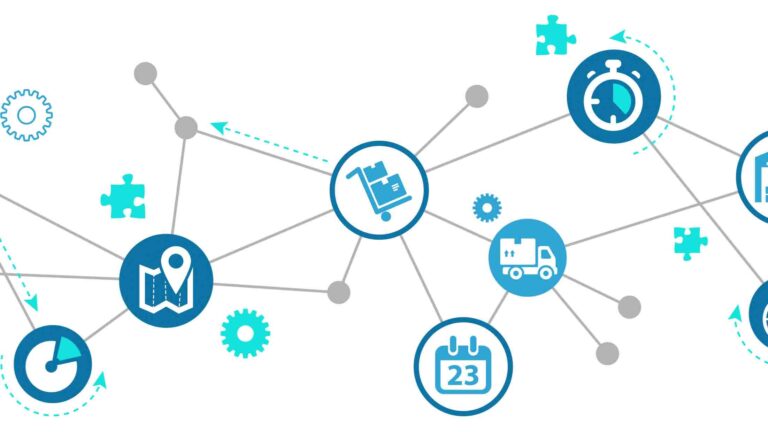
Fundamentals of Sustainable Supply Chains
In this course, you will learn how supply chain management, sustainability, and social responsibility work together to benefit companies in the microelectronics industry and beyond by exploring the fundamentals of sustainable supply chains to improve productivity and increase cost savings.
Future Trends in the Semiconductor Industry
Improve your understanding of current and future trends in the semiconductor industry through curriculum that addresses consumer and industrial applications of microelectronics, technology drivers, industrial processes, supply chains and overviews of materials for semiconductor fabrication.
Global Context of Semiconductor Supply Chains
This course explores the linkages across global semiconductor supply chains and addresses the competencies and specialized knowledge necessary for semiconductor supply chain management.

Hazardous Materials and Waste Management
This certificate provides current and prospective employees of multiple industries, including microelectronics, with a comprehensive and practical curriculum of study in hazardous materials management. It is targeted to environmental professionals who engage in management and transportation of hazardous materials and waste and includes several industry-required trainings.
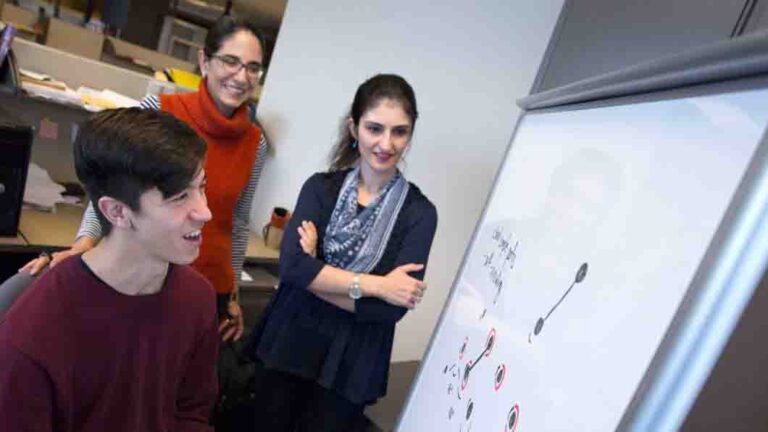
Industrial Engineering, BSE
The BSE program in industrial engineering deals with design, improvement, installation and operation of integrated systems of people, materials, information, equipment and energy with the purpose of determining efficient ways to develop products and services in multiple industries, including microelectronics.
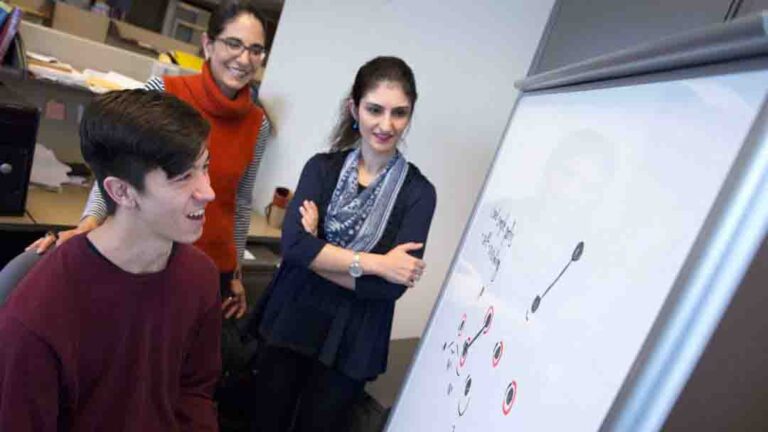
Industrial Engineering, MS
The MS program in industrial engineering deals with design, improvement, installation and operation of integrated systems of people, materials, information, equipment and energy with the purpose of determining efficient ways to develop products and services in multiple industries, including microelectronics.

Industrial Internet of Things (IIoT) with MQTT Protocol – Digital Badge
Unlock the power of Industry 4.0 with the Industrial Internet of Things (IIoT) with MQTT Protocol Badge. Dive into the heart of Smart Manufacturing and MQTT communication, and discover how to equip factory operations with cutting-edge technology.
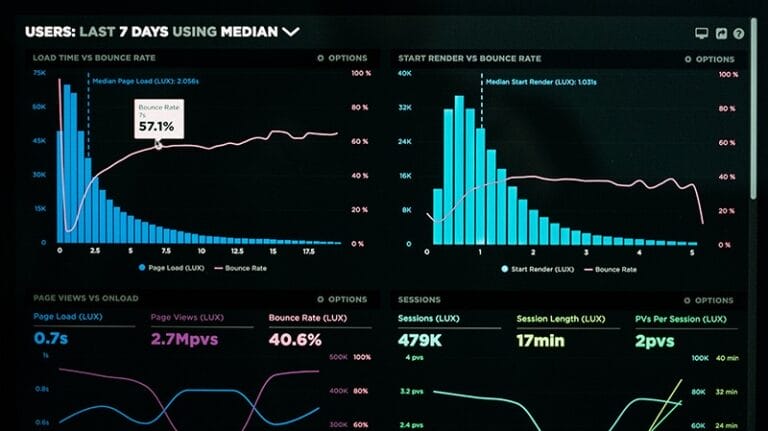
Industrial Internet of Things (IIoT): Factory Dashboard with MQTT – Digital Badge
Unleash the power of data visualization with the IIoT: Factory Dashboard with MQTT – Level 2 micro-badge. Dive into Plotly Dash, Pub-Sub architecture, and client-server communication as you develop cutting-edge dashboards that offer invaluable insights into machine assets.
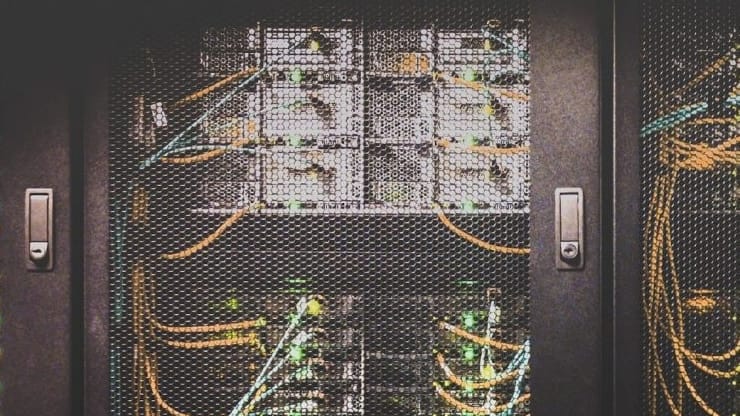
Industrial Internet of Things (IIoT): Industrial Data Flow – Digital Badge
Unlock the secrets of Industry 4.0 with the IIoT: Factory Data Flow micro-badge. From the history of the Industrial Revolution to the digitization of manufacturing, dive into the evolution of smart manufacturing and the pivotal role played by machine-to-machine communication.

Industrial Internet of Things (IIoT): MQTT Protocol Layer – Digital Badge
Step into Industry 4.0 with the IIoT: MQTT Protocol Layer micro-badge. Explore the intricacies of smart factory communication and understand the applications of the MQTT protocol, a cornerstone of modern industrial operations. Whether you’re an engineer, IT manager, or supervisor, this micro-badge is your key to unlocking the potential of IoT in manufacturing.
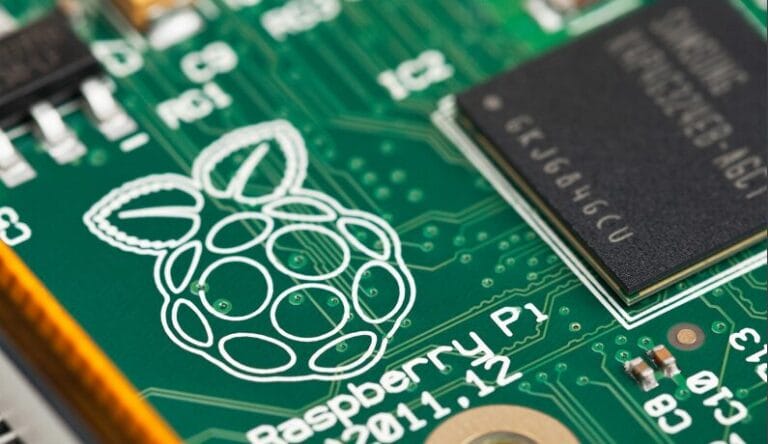
Industrial Internet of Things (IIoT): Raspberry PI with MQTT – Digital Badge
Explore Smart Manufacturing integration with the IIoT: Raspberry PI with MQTT – Level 2 micro-badge. Gain insights into RESTful interfaces, SQL databases, and CRUD operations as you delve into the intricacies of IIoT hardware-software stacks.

Introduction to Electrical Concepts in Semiconductor Packaging
Embark on your journey through the semiconductor packaging industry with the Introduction to Electrical Concepts in Semiconductor Packaging micro-badge. Discover the crucial role of power supply, voltage regulators, and signal integrity in semiconductor design. Whether you’re an entry-level technician or an engineer looking to refine your skills, this course provides an invaluable foundation.

Introduction to Packaging Materials, Manufacturing, Test, and Reliability
Explore the intricacies of semiconductor packaging and understand the applications of specialized materials with the Introduction to Packaging Materials, Manufacturing, Test, and Reliability micro-badge. Whether you’re an aspiring technician or a professional seeking to deepen your technical knowledge, this course is your key to unlocking the potential of innovative packaging technologies in the semiconductor industry.

Introduction to Quality and Program Management
This course offers students the ability to develop practical total quality management skills for application in real-world use cases, including the microelectronics industry, by addressing continual improvement of people, processes, products/services, and environments to enhance the process and outcomes of project management

Introduction to Semiconductor Packaging Design
Join us for the Introduction to Semiconductor Packaging and Design micro-badge, a comprehensive course designed for professionals eager to explore the critical role of packaging in the functionality and reliability of semiconductors. This course provides an overview of semiconductor structures, packaging types, and the latest technological advancements, catering to those new to the field or looking to enhance their expertise.

Introduction to Thermal Management and Mechanical Properties of Packages
Step into the world of semiconductor technology with the Introduction to Thermal Management and Mechanical Properties of Packages micro-badge. Explore the fundamentals of managing heat and the mechanical behavior of semiconductor packages—key components in sustaining and enhancing the performance of electronic devices. Whether you’re an entry-level technician or an engineer looking to specialize, this course is your gateway to mastering the critical aspects of thermal management and structural integrity in semiconductors.

Lean Six Sigma Green Belt (Manufacturing)
Lean Six Sigma is a quality control methodology used across manufacturing enterprises, including in microelectronics. The Lean Six Sigma Green Belt is an industry-recognized certification for manufacturing professionals including engineers, quality-control experts, supply chain managers, operations analysts and more.

Lean Six Sigma Yellow Belt
Lean Six Sigma is a quality control methodology used across manufacturing enterprises, including in microelectronics. The Lean Six Sigma Yellow Belt is an industry-recognized certification that introduces essential skills to analyze complex problems, eliminate waste and reduce process variation.

Logistics in the Supply Chain
Excellent logistics managers are essential to helping enterprises in the microelectronics industry understand each link in their supply chain. This class focuses on the history, importance, and process of transnational logistics, as well as the different delivery modes and the laws that apply to them.
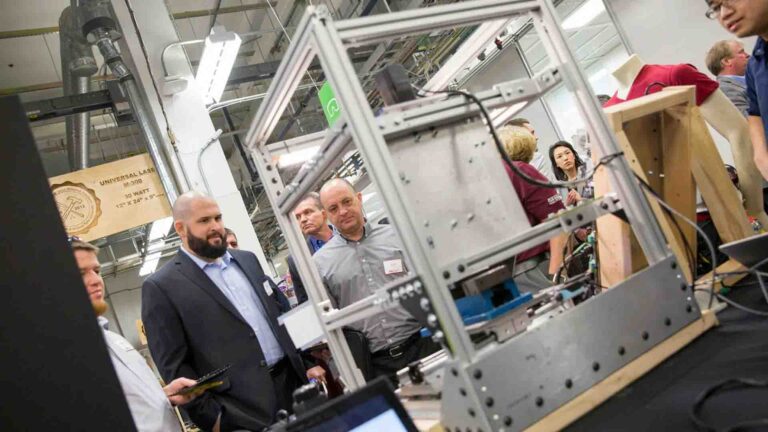
Manufacturing Engineering, BS
The BS program in manufacturing engineering prepares students for success in advanced manufacturing, including in microelectronics. Students will learn about statistical methods to control manufacturing operations; automated manufacturing systems for factory operation; manufacturing tooling and environments; production processes; and technological leadership.
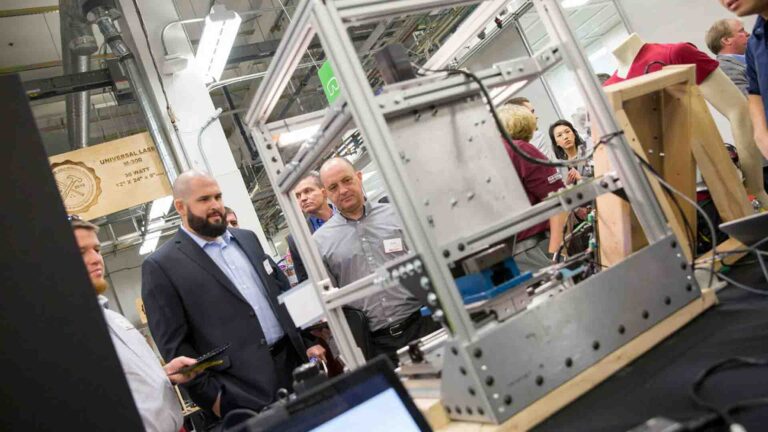
Manufacturing Engineering, MS
The MS program in manufacturing engineering allow students to deepen their expertise in either manufacturing processes or the processes of manufacturing. The program provides advanced technical content to help students prepare for career transitions, including within the microelectronics industry.
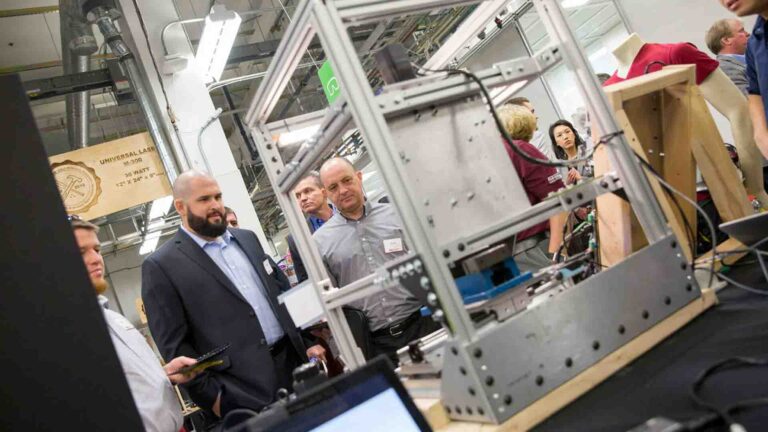
Manufacturing Engineering, PhD
The PhD program in manufacturing engineering provides students with the knowledge, skills and abilities to successfully meet the most difficult challenges of modern manufacturing industries, including microelectronics, on a global scale.
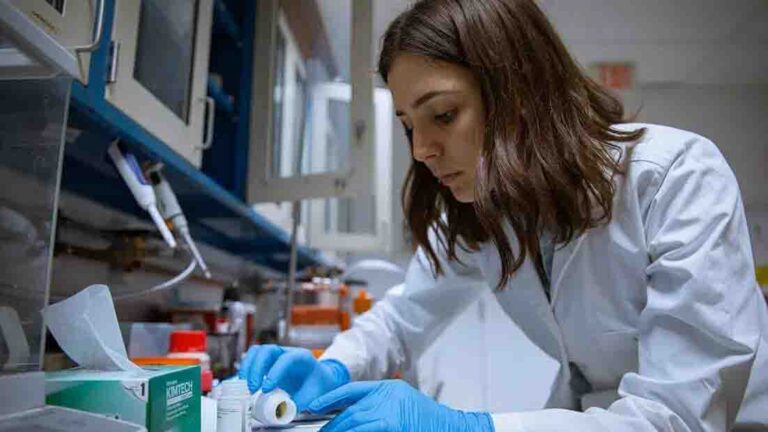
Materials Science and Engineering, BSE
The BSE in materials science and engineering addresses the discovery, synthesis, processing, manufacturing and characterization of substances widely used in the microelectronics industry, including sustainable materials, polymers, metals, semiconductors, ceramics and composites. The program prepares students to discover and design new and better materials.
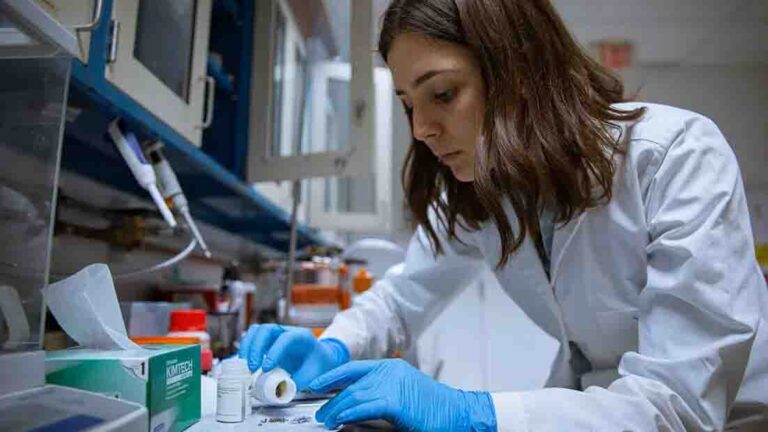
Materials Science and Engineering, Minor
The materials science and engineering minor program gives science and engineering majors an in-depth understanding of materials that can help to position them for success in the microelectronics industry, including materials structure, processing, properties and performance.
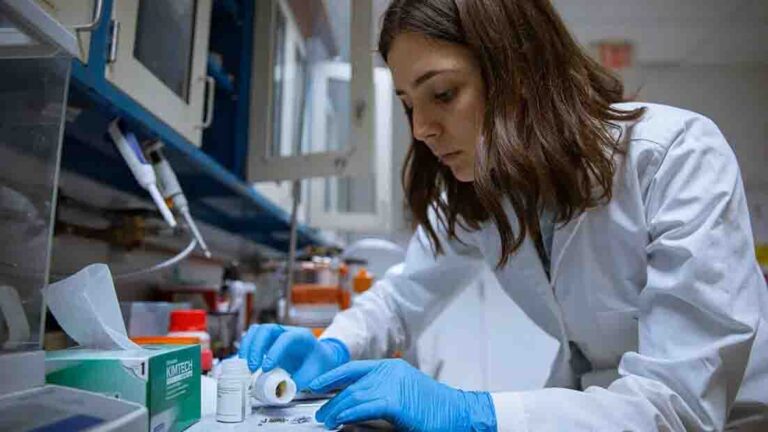
Materials Science and Engineering, MS
The MS program in materials science and engineering prepares engineers for doctoral study or for industrial positions that specialize in research, project management and product innovation in materials science and engineering, including in the microelectronics industry. The program stresses a sound foundation in technical fundamentals, communication and professionalism.
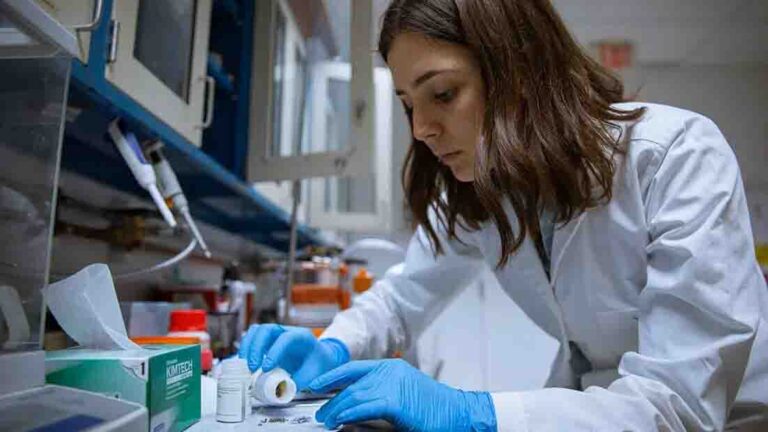
Materials Science and Engineering, PhD
The PhD program in materials science and engineering prepares students for professional careers in multiple industries, including microelectronics, and academia. The program addresses a broad range of materials-driven challenges, such as energy efficiency, sustainability, functional nanostructures, electronic materials, biomaterials and polymers.
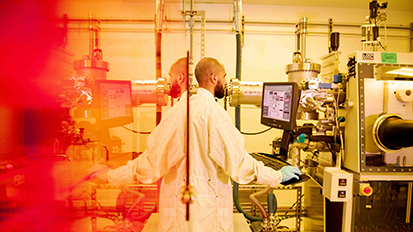
Materials Science for Advanced Technological Applications – Microelectronics
This advanced specialization extends upon the initial Materials Science specialization. Multiple roles in the micro electronics industry will benefit from the knowledge contained in this specialization, including Materials Engineer, Chemical Engineer, Electrical Engineer and Materials Quality Control.
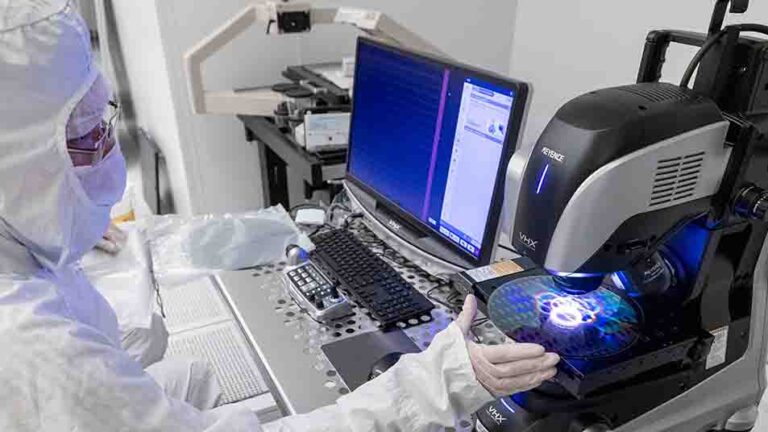
Materials Science for Technological Applications – Microelectronics
This specialization provides introductory knowledge and understanding of key concepts in Materials Science that are vital to roles in the microelectronics industry. Some of the position titles that may benefit from this course include Materials Engineer, Chemical Engineer, Electrical Engineer, Aerospace Engineer, Materials Quality Control.
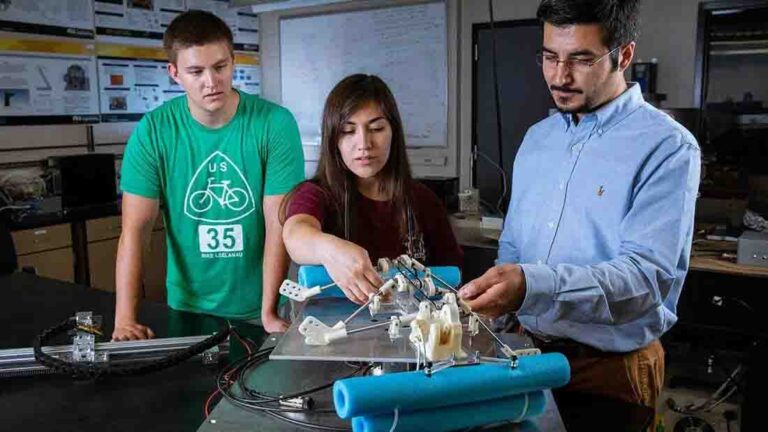
Mechanical Engineering, BSE
Mechanical engineering is a creative, diverse discipline with application in the microelectronics industry and beyond. The mechanical engineering BSE curriculum includes the study of the principles governing energy transfer, mechanical design, sensors and control devices and the application of these principles to the creative solution of practical modern problems.
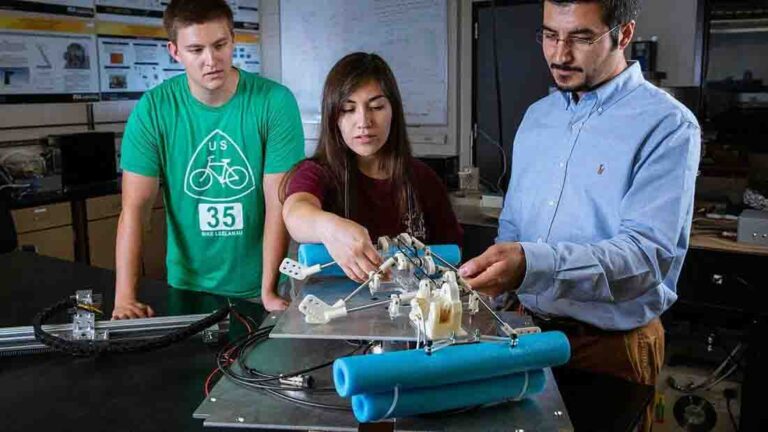
Mechanical Engineering, MS
The MS program in mechanical engineering prepares engineers for doctoral study or industrial positions that specialize in research, project management and product innovation in mechanical engineering, including in the microelectronics industry. The program stresses a sound foundation in technical fundamentals, communication and professionalism.
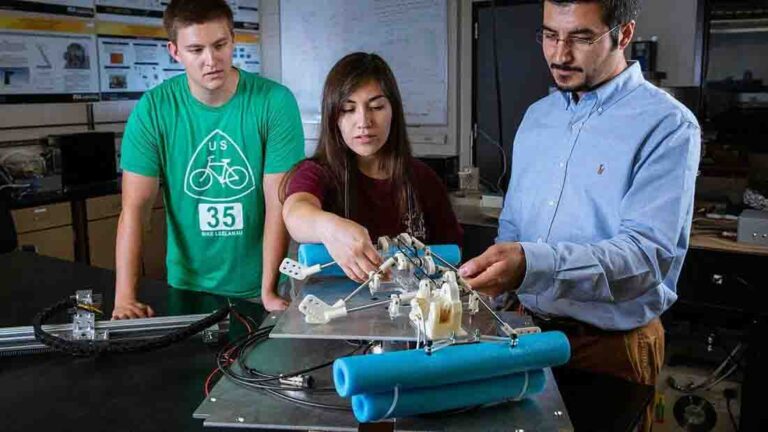
Mechanical Engineering, PhD
The PhD program in mechanical engineering emphasizes original research and provides students with a strong background for employment by academic institutions, government laboratories and industries such as microelectronics. The program offers a broad curriculum that provides a sound foundation in technical fundamentals, communication and professionalism.

Modern Supply Chain Principles
Begin your path to understanding the management of global supply chains across extended supplier networks with the modern supply chain principles course, which addresses basic economic, business and management principles across global industries, including microelectronics.

Operations and Supply Chain Management
Explore supply chain management topics, including environmental, project, and supply chain processes. It is designed for working professionals with some exposure to supply chain topics, including those in the microelectronics industry.

Planning for Program Quality
This course introduces learners to topics around effective management and effective stakeholder management to ensure project success, teaching program quality principles essential to projects in multiple industries, including microelectronics.
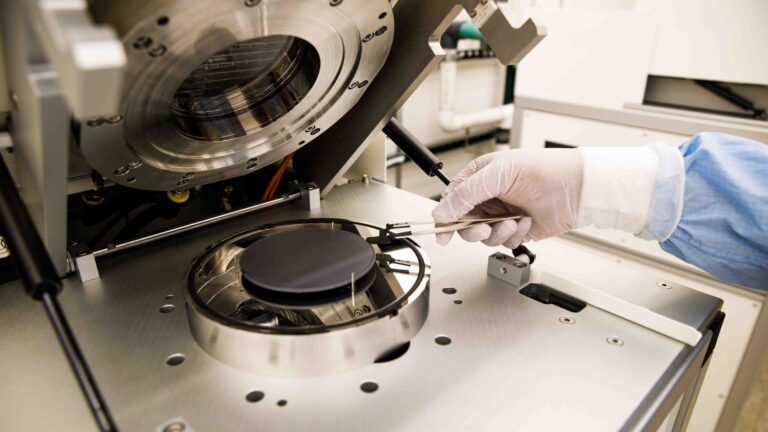
Rapid Prototyping and Tooling Specialization – Microelectronics
This specialization teaches how to make effective prototypes, an essential skill in the microelectronics industry and advanced manufacturing.The specialization addresses fundamentals of prototype design, highlighting best practices for different materials and manufacturing equipment.
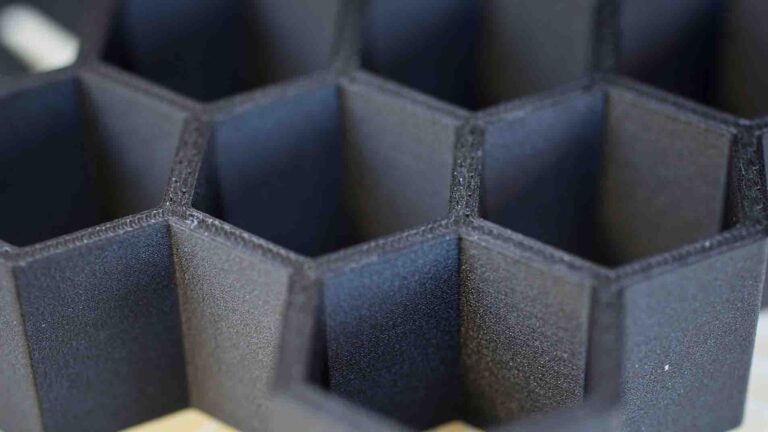
Rapid Prototyping Using 3D Printing – Microelectronics
This specialization will help learners to understand how prototyping can be accelerated in microelectronics and beyond through the use of 3D printing. Learners who complete this specialization will obtain a rich understanding of the key roles of prototyping in engineering and product development processes and how to use various types of 3D printing technologies.

Robotics and Autonomous Systems (Artificial Intelligence), MS
The Robotics and Autonomous Systems MS provides research-based education across multiple concentrations with direct applicability in the micro electronics industry, including artificial intelligence.

Robotics and Autonomous Systems (Biomedical Engineering), MS
The Robotics and Autonomous Systems MS provides research-based education across multiple concentrations with direct applicability in the micro electronics industry, including biomedical engineering.
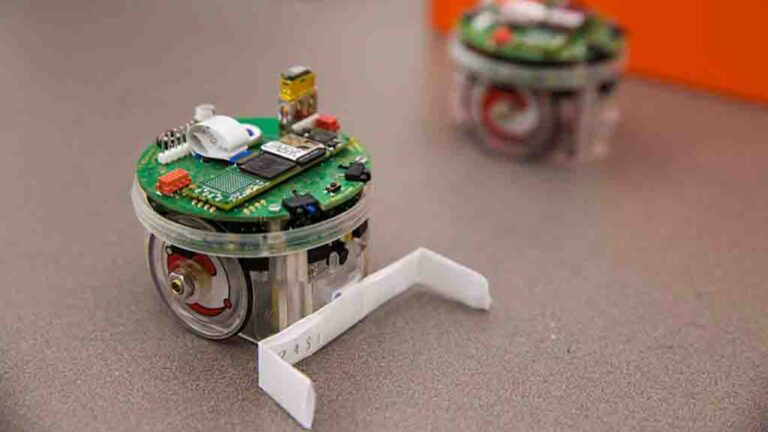
Robotics and Autonomous Systems (Electrical Engineering), MS
The Robotics and Autonomous Systems MS provides research-based education across multiple concentrations with direct applicability in the micro electronics industry, including electrical engineering.
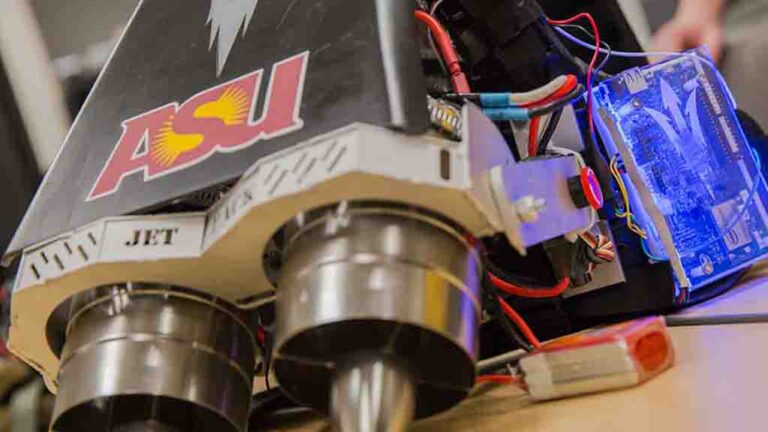
Robotics and Autonomous Systems (Mechanical and Aerospace Engineering), MS
The Robotics and Autonomous Systems MS provides research-based education across multiple concentrations with direct applicability in the micro electronics industry, including mechanical and aerospace engineering.

Robotics and Autonomous Systems (Mechatronics and Automation), PhD
The mechatronics and automation concentration of the PhD program in robotics and autonomous systems provides an opportunity for in-depth independent research in a highly focused problem domain approved by the student’s advisory committee. This program is intended primarily for those who desire to develop expertise in a particular and focused problem in the field of robotics and autonomous systems, including both traditional and advanced robotics and autonomous systems technologies, systems integration and data fusion techniques, and modeling and simulation development.
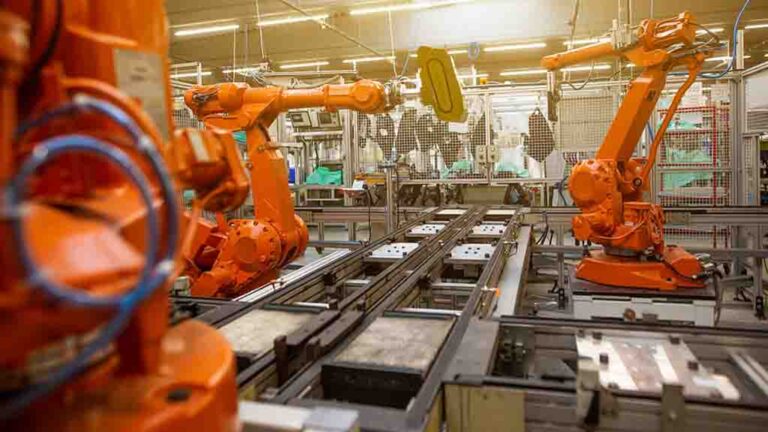
Robotics and Autonomous Systems (Systems Engineering), MS
The Robotics and Autonomous Systems MS provides research-based education across multiple concentrations with direct applicability in the micro electronics industry, including systems engineering.
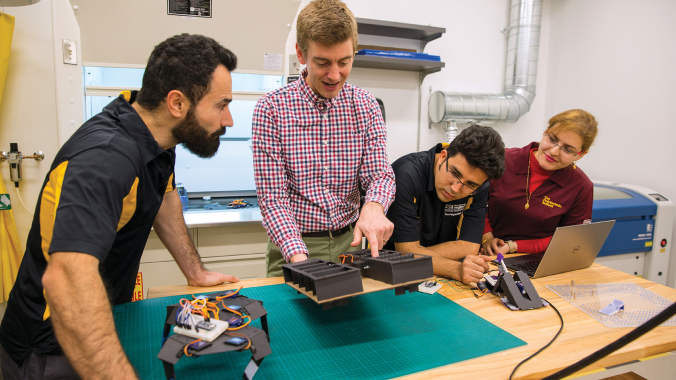
Robotics and Autonomous Systems, BS
The BS program in robotics and autonomous systems provides students with a well-rounded education in robotics, controls, autonomous systems and automation. It is intended primarily for those who desire to develop general expertise in robotics and autonomous systems, including both theory and application of robotics and autonomous systems technologies, systems integration and data fusion techniques, and modeling and simulation development.
Semiconductor Characterization – Microelectronics
Immerse yourself in the world of semiconductor characterization. Starting from the basics, you’ll progress through courses covering diodes, MOSFETs, microscopy, and spectroscopy.
Semiconductor Packaging – Microelectronics
This specialization, jointly developed by ASU and Intel, provides a foundational understanding of semiconductor packaging is, how packaging is designed and made, and how it works to finish, connect and protect functional parts.

Semiconductor Packaging: Fundamental Concepts and Drivers
This course provides an in-depth look at how semiconductor packaging protects and enhances the functionality of integrated circuits, which are integral to all modern electronic devices. Take one micro-badge or complete all four to earn the badge!
Semiconductor Processing
ASU’s Certificate in Semiconductor Processing helps workers to rapidly obtain essential skills for semiconductor manufacturing, from advanced materials characterization to device theory and simulation, data mining, quality control and reliability, and Six Sigma methodology.
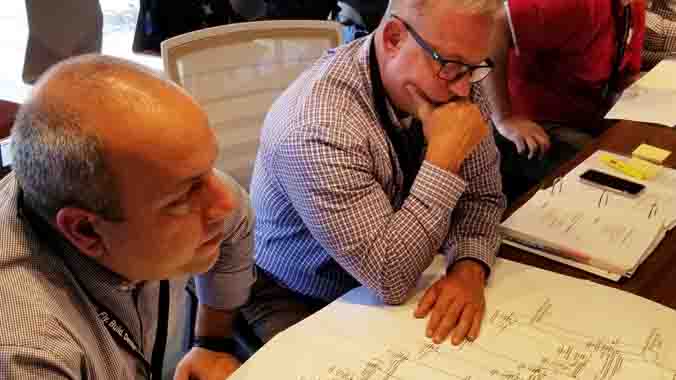
Six Sigma Black Belt
Six Sigma is a quality control methodology used across manufacturing enterprises, including in microelectronics. The Six Sigma Black Belt is a sought-after industry certification for experienced manufacturing professionals in project management and leadership roles.
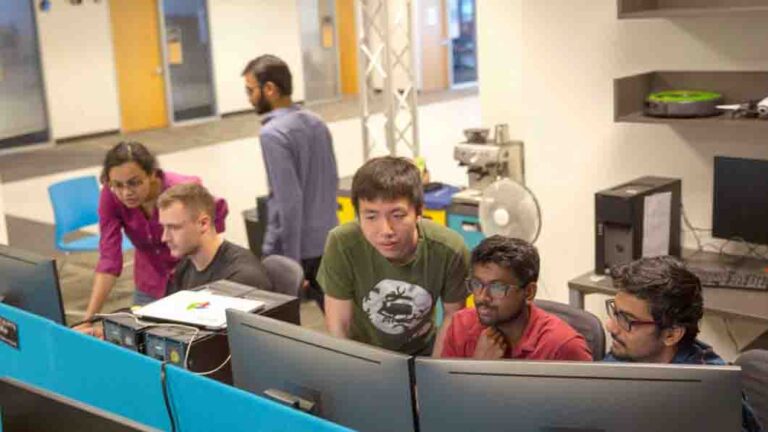
Software Engineering, BS
The BS program in software engineering blends engineering, computing, project leadership and software construction, equipping students to develop creative software solutions to challenges in microelectronics and other industries. Graduates of the program will possess the knowledge and skills of a defined engineering approach to complex systems analysis, planning, design and construction.
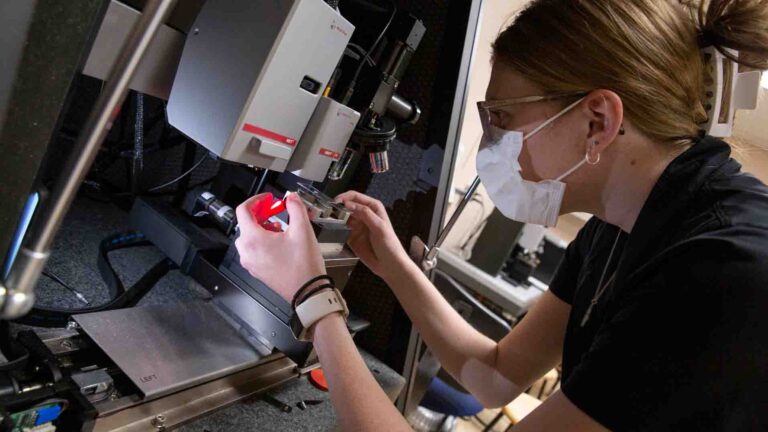
Supply Chain and Sustainable Materials
This course highlights the economic, health, and social impact of sustainable supply chains and materials and introduces frameworks for using them in microelectronics and other industries for triple-bottom line impact.

Supply Chain Management and Engineering, MS
The MS in supply chain management and engineering is designed for working professionals in supply chain management, industrial engineering and related fields, including microelectronics. The program equips graduates to use state-of-the-art engineering tools to analyze, control and optimize modern supply chains.

Supply Chain Management and Integrating Cost and Value in Projects
This course teaches Supply Chain Management from the project cost management perspective and is designed to help future supply chain managers thrive in the microelectronics industry and beyond through comprehensive training in cost management and value methods.

Supply Chain Management, MS
The MS program in supply chain management provides students an understanding of the role the supply chain manager can play in enterprise supply chains across industries, including in microelectronics. The program exposes them to leading supply chain management operating practices, analysis methods, technology applications and strategy development.

Supply Chain Management, PhD
Supply chain management is a vital discipline for numerous industries including microelectronics and incorporates logistics management, operations management and supply management. The PhD in business administration with a concentration in supply chain management is a full-time residential program for students whose career goals are full-time university research and teaching.

Sustainable Supply Chain Management
This course covers supply chains, what they are, and how companies in various industries, including microelectronics, can create sustainable supply chains. The course introduces learners to a framework can help companies to make supply chains more sustainable.

Systems Engineering, PhD
The program is aimed at advancing the understanding of complex engineering systems and where these systems are inclusive of technological aspects, as well as social, cultural, environmental and other interacting components that impact the input, output and interactions within a system. The program prepares students to identify, model, analyze, interpret, optimize and manage the multidimensional interactions of the ever-increasing complexity of modern technological and societal challenges.
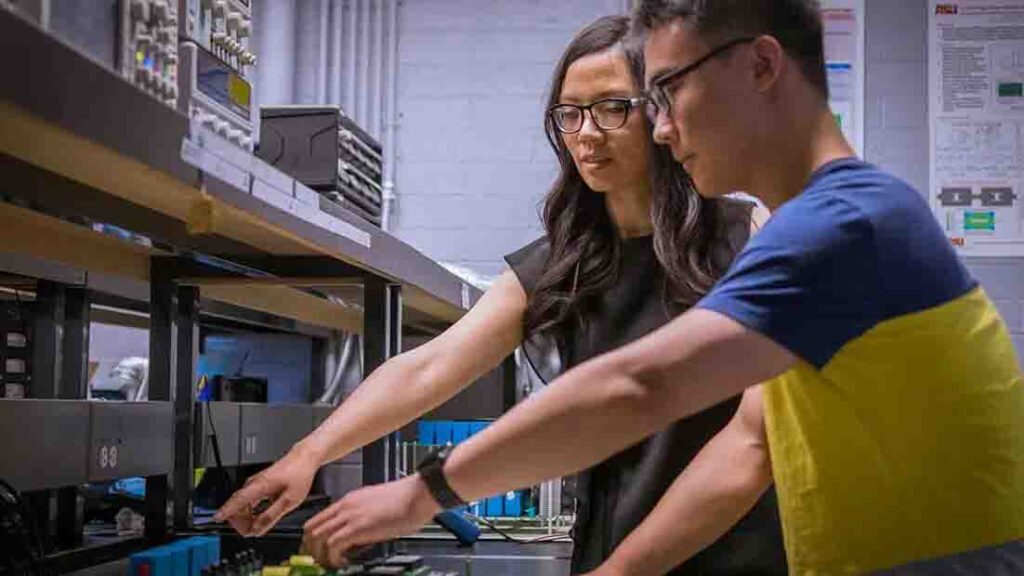
Electrical Engineering, MS
The MS program in electrical engineering offers a research track that allow students to choose among and specialize in multiple areas of specialization directly relevant to the microelectronics industry.

Engineering Science (Microelectronics), BS
Prepare to excel in the microelectronics industry with the BS program in engineering science with a concentration in microelectronics. Students master fundamental mathematics, coding, digital design and physics, while simultaneously
Global Context of Semiconductor Supply Chains
This course explores the linkages across global semiconductor supply chains and addresses the competencies and specialized knowledge necessary for semiconductor supply chain management.

Lean Six Sigma Green Belt (Manufacturing)
Lean Six Sigma is a quality control methodology used across manufacturing enterprises, including in microelectronics. The Lean Six Sigma Green Belt is an industry-recognized certification for manufacturing professionals including engineers, quality-control experts, supply chain managers, operations analysts and more.
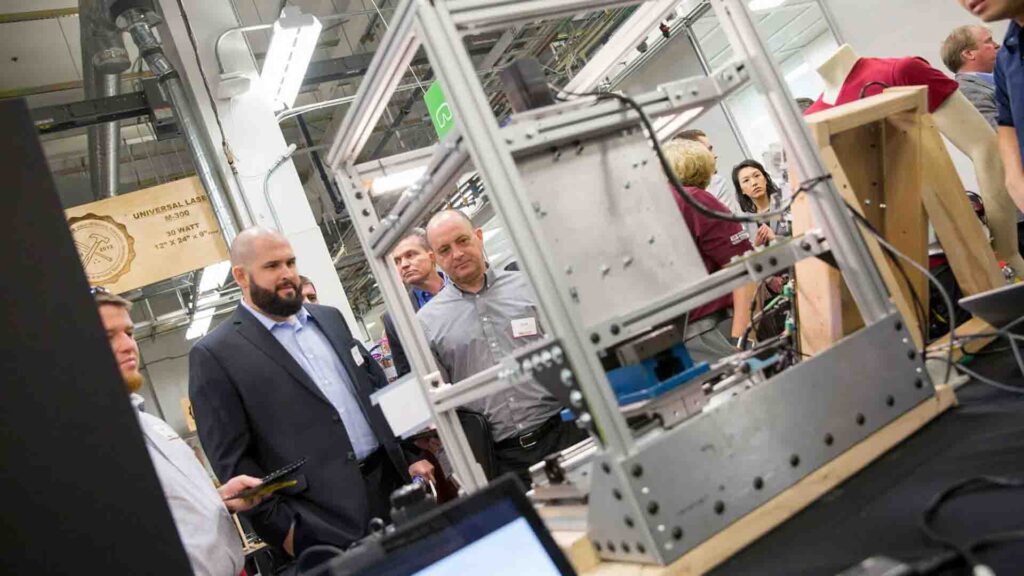
Manufacturing Engineering, PhD
The PhD program in manufacturing engineering provides students with the knowledge, skills and abilities to successfully meet the most difficult challenges of modern manufacturing industries, including microelectronics, on a global scale.
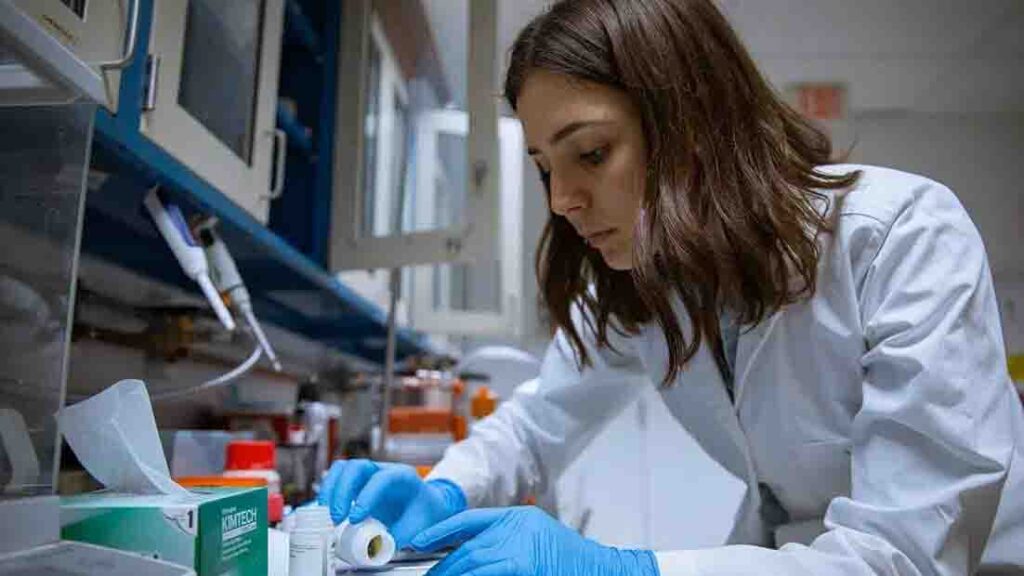
Materials Science and Engineering, BSE
The BSE in materials science and engineering addresses the discovery, synthesis, processing, manufacturing and characterization of substances widely used in the microelectronics industry, including sustainable materials, polymers, metals, semiconductors, ceramics and composites. The program prepares students to discover and design new and better materials.
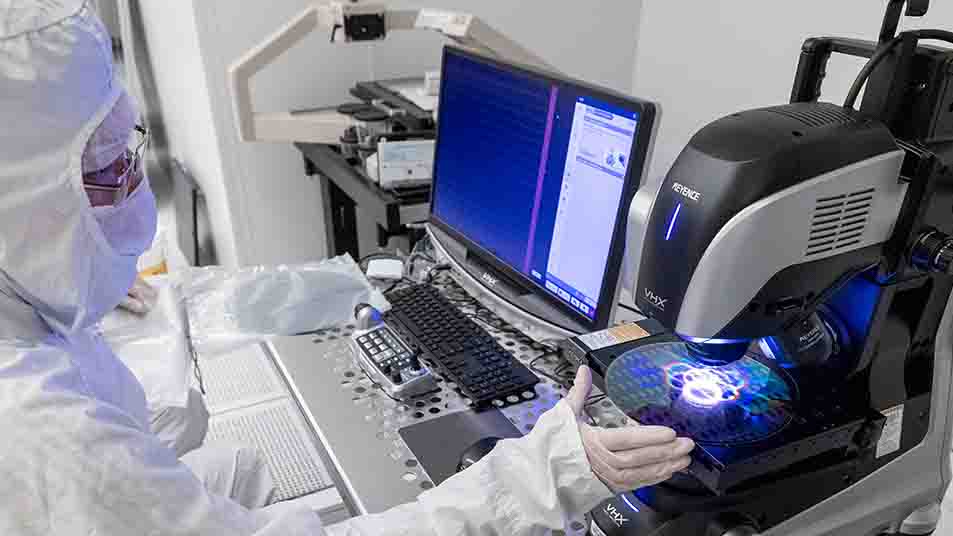
Materials Science for Technological Applications - Microelectronics
This specialization provides introductory knowledge and understanding of key concepts in Materials Science that are vital to roles in the microelectronics industry. Some of the position titles that may benefit from this course include Materials Engineer, Chemical Engineer, Electrical Engineer, Aerospace Engineer, Materials Quality Control.
Semiconductor Packaging - Microelectronics
This specialization, jointly developed by ASU and Intel, provides a foundational understanding of semiconductor packaging is, how packaging is designed and made, and how it works to finish, connect and protect functional parts.

Semiconductor Packaging: Fundamental Concepts and Drivers
This course provides an in-depth look at how semiconductor packaging protects and enhances the functionality of integrated circuits, which are integral to all modern electronic devices. Take one micro-badge or complete all four to earn the badge!